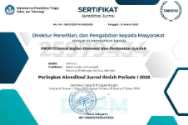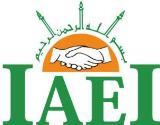TRANSFORMATION OF PESANTREN ECONOMIC MANAGEMENT TOWARD SELF-RELIANCE BASED ON LOCAL WISDOM
(1) * Syaiful Anam
 (Universitas Nurul Jadid)
(Universitas Nurul Jadid) Indonesia
(2) Moh Alpa Hosim (Universitas Nurul Jadid)
Indonesia
(3) Ainol Yaqin (Universitas Nurul Jadid)
Indonesia
(*) Corresponding Author
AbstractIslamic boarding schools (pesantren) play a strategic role not only as centers for education and da'wah but also as key drivers of community economic development. However, many pesantren still rely heavily on donations and external subsidies, which hinders the achievement of true financial independence. This study aims to analyze the transformation of pesantren economic management toward self-reliance based on local wisdom, with a case study on the Badan Usaha Milik Pesantren (BUMPES) Nurul Jadid. This research employs a qualitative approach with data collection techniques including observation, interviews, and document analysis. The findings reveal that BUMPES Nurul Jadid implements a strategy of business diversification based on local potential, strengthening sharia-based governance, and utilizing technology in production and marketing. These measures enable the pesantren to generate stable and sustainable income sources. Local wisdom plays a crucial role in ensuring the sustainability of the pesantren economy by upholding the values of honesty, mutual cooperation (gotong royong), and prudent use of local resources. This transformation not only fosters the economic independence of the pesantren but also contributes to the welfare of the surrounding community. Therefore, an economic model based on local wisdom offers an effective solution for building independent and competitive pesantren without compromising Islamic values. |
Keywords
Full Text: PDF
Refbacks
- There are currently no refbacks.
Copyright (c) 2025 Syaiful Anam, Moh Alpa Hosim
This work is licensed under a Creative Commons Attribution-NonCommercial-ShareAlike 4.0 International License.
Published by Islamic Faculty of Nurul Jadid University, Probolinggo, East Java, Indonesia.





.jpg)



